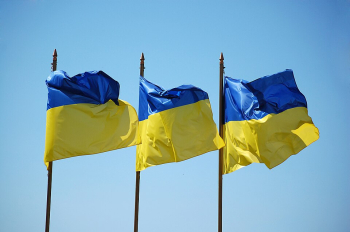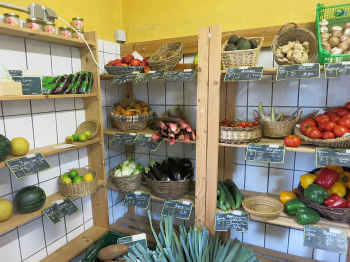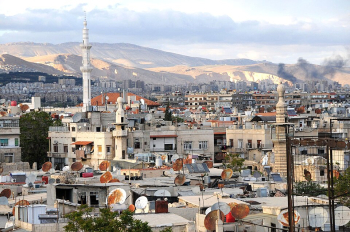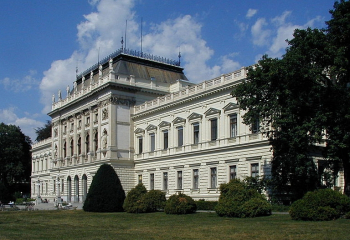
The European Commission has today published the second EU-wide Report on the Rule of Law with a Communication looking at the situation in the EU as a whole and dedicated
Vice-President for Values and Transparency, Věra Jourová, said: “The Rule of Law Report is a useful preventive tool that has stimulated needed debate among the Member States and other actors. The second edition shows that Member States can make progress to address rule of law matters. Yet this has been uneven and there are causes for serious concern in a number of Member States, especially when it comes to the independence of judiciary. Moreover, two journalists were murdered over the past months – this is not acceptable. The report calls for decisive action to improve media freedom and pluralism. Over the next year, we expect the findings of the 2021 report to nourish discussions between Member States as they work to strengthen the rule of law.”
Commissioner for Justice, Didier Reynders, said: “Over this past year, the 2020 Rule of Law Report has encouraged positive reforms related to the rule of law in a number of Member States. Moreover, the Council of Ministers used it to modernise its rule of law dialogue, with regular country-specific debates. I have also debated the report in 20 national parliaments. This year, we have further deepened our assessment, which benefitted from even more outreach than last year. The report can help us to have a real dialogue as a Union, side by side, in an honest and open spirit. This 2021 report, building on the one of last year, will foster this process.”
Key findings on the rule of law situation in Member States
2021 report builds on the methodology and scope of the previous report focusing on the four key elements: justice systems; the anti-corruption framework; media pluralism and media freedom; and other institutional issues linked to checks and balances.
- Justice Systems
Almost all Member States are undertaking reforms related to their justice systems, albeit with variations in scope, form and progress. In a number of Member States, steps have been or are being taken to strengthen judicial independence through reforms related to Judicial Councils, the appointment of judges, and the independence and autonomy of the prosecution services, for example. However, a few Member States have continued to carry out reforms that lower their safeguards for judicial independence, raising concerns or aggravating the existing ones related to increased influence of the executive and legislative branch over the functioning of their justice system. Moreover, in some Member States, political attacks and repeated attempts undermining judges or judicial institutions are further challenging judicial independence. Since the adoption of the 2020 report, the Court of Justice of the EU has reaffirmed the importance of effective judicial protection for upholding the rule of law. Finally, the COVID-19 pandemic has given a new sense of the urgency to modernise justice systems and highlighted the potential of digitalisation.
2. Anti-corruption frameworks
EU Member States continue to be among the best performers globally, with ten Member States in the world's top twenty of countries perceived as least corrupt. Several Member States are currently adopting or revising national anti-corruption strategies or action plans. Many took measures to strengthen the corruption prevention and integrity frameworks, including rules on conflicts of interests, lobbying transparency and revolving doors. Challenges however remain, in particular linked to criminal investigations, prosecutions and the application of sanctions for corruption in some Member States. Major or highly complex corruption cases continued to emerge in various Member States. The resources allocated to anti-corruption are not always adequate in some Member States, while concerns about the effectiveness of investigations, prosecution and adjudication of high-level corruption cases persist in others. Overall, the COVID-19 pandemic has slowed down reforms and the decisions in corruption cases in some Member States.
3. Media freedom and pluralism
During the COVID-19 pandemic, journalists and media workers in Europe were under a heavy strain. With the highest ever number of journalist safety alerts and recent tragic events there is a need to address the issue across the EU. The 2021 Media Pluralism Monitor – a key source of information for the Rule of Law Report – points to an overall deterioration of the situation of journalists in several Member States. Not all media regulators are free from political influence and there is a high risk of political interference in the media in some Member States. The news media have been crucial in keeping citizens informed during the COVID-19 pandemic even though a series of restrictions made journalists' jobs harder. The pandemic has also triggered serious economic challenges for the media sector, which led some Member States to adopt news media support schemes. Such support must be implemented in a transparent and equitable manner.
4.Institutional checks and balances
Since last year, some Member States have continued to embark on constitutional reforms to strengthen checks and safeguards. Some have recently put measures in place to increase the transparency of law making and improve citizens' participation. Overall, national checks and balances, including the Parliaments, the courts, ombudspersons and other independent authorities have played a crucial role during the COVID-19 pandemic, which has been a stress test for the rule of law. At the same time, challenges exist to the legislative process, such as sudden changes, expedited procedures, or to the system of constitutional review. Civil society generally benefits from a supportive environment in the majority of Member States but in some of them it continues to face serious challenges, be it deliberate threats from the authorities, inadequate protection against physical or verbal attacks, or an inadequate level of protection of fundamental rights guaranteeing their work. These challenges have been at time exacerbated by the context of the COVID-19 pandemic. A number of recent developments have raised concern with regard to the respect of the primacy of EU law, essential for the functioning of the EU's legal order and equality of Member States in the EU.
Next steps
The adoption of the 2021 Rule of Law Report marks the start of a new cycle of dialogue and monitoring. The Commission invites the Council and the European Parliament to have general and country-specific debates on the basis of this report, and calls on national parliaments and other key actors to continue to intensify national debates. The Commission invites Member States to effectively take up the challenges identified in the Report and stands ready to assist Member States in these efforts.
Background
The annual Rule of Law Report is the result of close dialogue with national authorities and stakeholders, and covers all Member States on an objective and impartial basis, looking at the same issues. The qualitative assessment carried out by the Commission focuses on significant developments since the adoption of the first annual Rule of Law Report and ensures a coherent approach by applying the same methodology to all Member States, while remaining proportionate to developments. The scope and the methodology of the 2021 edition are the same as for the first annual Rule of Law Report, adopted in September 2020.
The report is at the centre of the Rule of Law Mechanism. The Mechanism is a yearly cycle to promote the rule of law and prevent problems from emerging or deepening further. The goal is to focus on improving understanding and awareness of issues and significant developments, as well as to identify rule of law challenges and help Member States find solutions with support from the Commission and the other Member States. It also allows Member States to exchange best practices, discuss among themselves and learn from each other.
The objective of the Mechanism is preventive. It is separate from the other elements in the EU's Rule of Law Toolbox, and complements but does not replace the Treaty-based mechanisms for the EU to respond to more serious rule of law related issues in Member States. These tools include infringement proceedings and the procedure to protect the founding values of the Union under Article 7 of the Treaty on European Union.
There is also a close link to EU policies to bring economic recovery: strong justice systems, a robust anti-corruption framework, and a clear and consistent system of law-making, the protection of the EU's financial interests, and sustainable growth. This is a key driver for the work of EU instruments, which promote structural reforms in Member States. Photo by Cédric Puisney, Wikimedia commons.

















